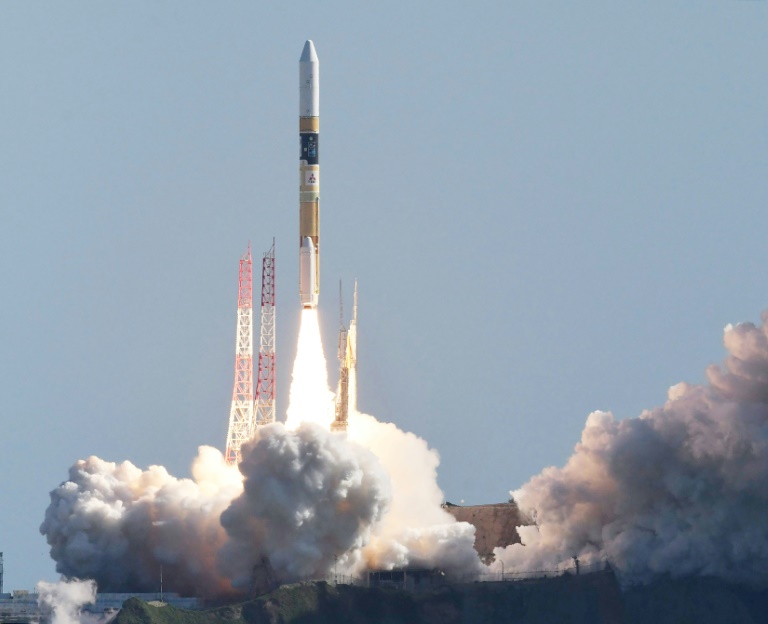Japan’s ’Moon Sniper’ lander took off from Tanegashima Space Centre aboard a H-IIA rocket in September. The spacecraft will attempt a historic touchdown on the lunar surface this weekend using pinpoint technology the country hopes will lead to success where many have failed. With its Smart Lander for Investigating Moon (SLIM) mission, Japan wants to become the fifth nation to pull off a fiendishly tricky soft landing on the rocky surface. The descent of the lightweight SLIM craft, nicknamed the “Moon Sniper” by space agency JAXA, is scheduled to start at midnight Japan time on Saturday (1500 GMT Friday). If all goes to plan, the touchdown will be around 20 minutes later. The craft is targeting an area within 100 meters (330 feet) of a spot on the lunar surface — far less than the usual landing zone of several kilometers. Success would reverse Japan’s fortunes in space after two failed lunar missions and recent rocket failures, including explosions after take-off. It would also echo the triumph of India’s low-cost space program in August, when the country became the first to land an uncrewed craft near the Moon’s largely unexplored south pole. SLIM is expected to land on a crater where the Moon’s mantle — the deep inner layer beneath its crust — is believed to be accessible at the surface. JAXA has already made a pinpoint landing on an asteroid, but the challenge is greater on the Moon, where gravity is stronger. With just one shot at landing, the pressure is on — and the craft’s precision is vital in the attempt to “land on an area surrounded by rocks”, which it will examine with a camera. The mission also has ambitions to shed light on the mystery of water resources that will be key to building bases on the Moon one day. The lunar surface is desert-like, but at the poles, where the terrain is rugged and sunlight is scarce, there are areas where water could exist. SLIM’s rolling probe, slightly bigger than a tennis ball, can change its shape to move on the Moon’s surface and was jointly developed by JAXA and Japanese toy giant Takara Tomy. Adding to the playful mood, JAXA has released an online video game called “SLIM: The pinpoint moon landing game”. More than 50 years after the first human Moon landing, countries and private companies are racing to make the trip anew. But crash-landings, communication failures and other technical problems are rife. This month, a private US lunar lander had to turn back after leaking fuel, while NASA postponed plans for crewed lunar missions under its Artemis program. Russia, China and other countries from South Korea to the United Arab Emirates are also trying their luck. Previous Japanese lunar missions have failed twice – one public and one private. In 2022, the country unsuccessfully sent a lunar probe named Omotenashi as part of America’s Artemis 1 mission. In April, Japanese startup ispace tried in vain to become the first private company to land on the Moon, losing communication with its craft after what it described as a “hard landing“.
Japan
Space
2024-01-18 10:00:05
Original from www.ibtimes.com
